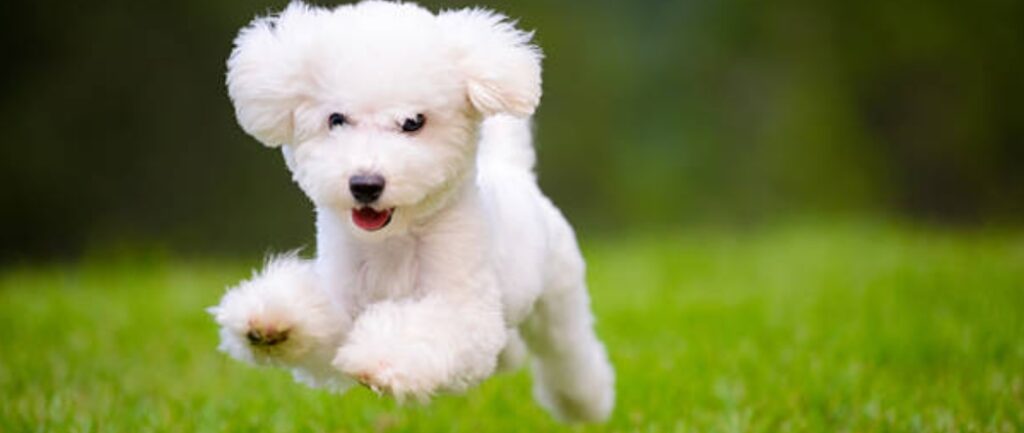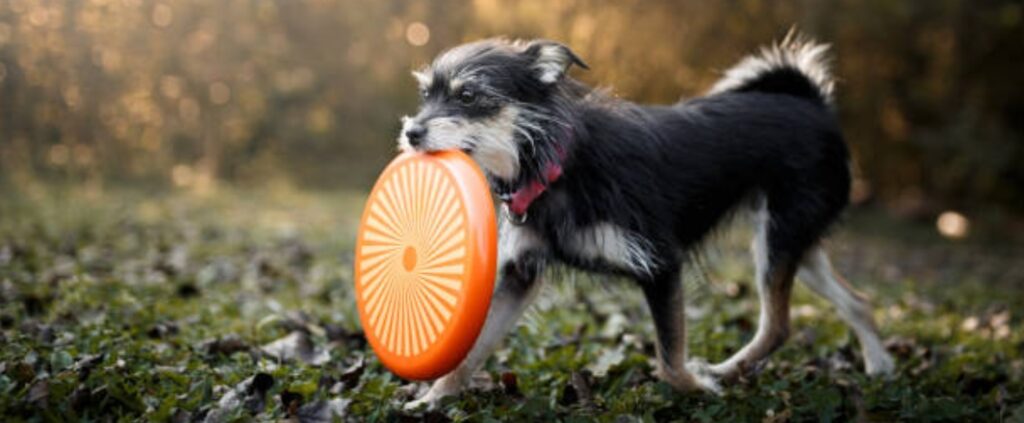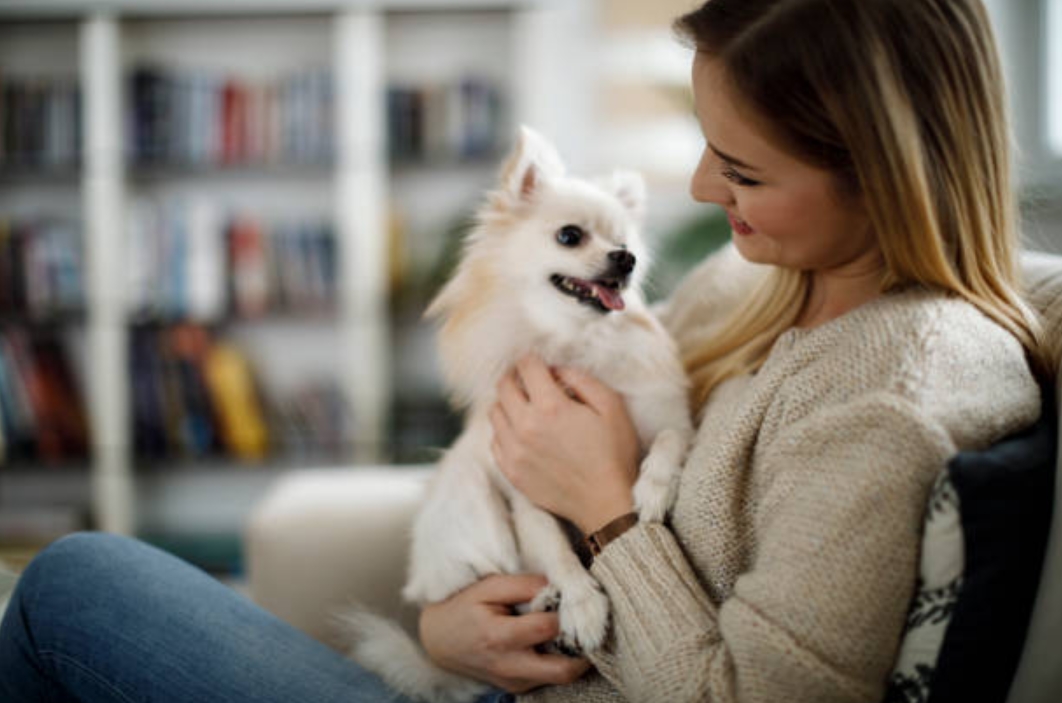Welcome to our comprehensive guide to small dog breeds! In this post, we’ll explore the world of small dogs, including their characteristics, care requirements, and popular breeds. Our aim is to help you choose the right breed for your lifestyle and needs and provide you with the knowledge you need to care for your small dog companion.
Small dogs are a popular choice for pet owners worldwide, and it’s easy to see why. They come in a wide variety of shapes, sizes, and personalities, and can be found in nearly every country and culture. From the tiny Chihuahua to the feisty Jack Russell Terrier, there’s a small dog breed to suit almost every preference.
However, with so many small dog breeds to choose from, it’s important to take the time to research and consider your options carefully. Choosing the right breed for your lifestyle and needs can ensure that you and your small dog have a happy and fulfilling life together.
In this guide, we’ll cover the characteristics of small dog breeds, the most popular small dog breeds to consider, and tips for choosing the right breed for you. We’ll also provide advice on how to care for and train your small dog, as well as strategies for keeping them healthy and happy.
Characteristics of Small Dog Breeds
Small dog breeds come in a wide range of sizes, from the tiny Chihuahua to the slightly larger Cavalier King Charles Spaniel. They typically weigh between 5 and 20 pounds, making them easy to handle and transport. Coat type also varies widely among small dog breeds, from the long, silky hair of the Yorkshire Terrier to the curly, wiry coat of the Bichon Frise. Dog breed – Wikipedia
Temperament and Personality Traits
Small dogs are known for their big personalities! They are often playful, affectionate, and full of energy, making them great companions for families or individuals who enjoy an active lifestyle. However, some small dog breeds can also be stubborn or aggressive, so it’s important to research different breeds to find one that matches your personality and lifestyle.
Exercise and Grooming Needs
Although small dogs are often active and playful, they generally require less exercise than larger breeds. A daily walk and some indoor playtime are usually enough to keep a small dog happy and healthy. Grooming needs vary depending on the breed, but most small dogs require regular brushing to maintain their coats and prevent matting.
Common Health Issues and Potential Lifespan
Like all dogs, small dog breeds are prone to certain health issues, such as dental problems, obesity, and heart disease. However, some breeds are more susceptible to certain conditions than others.
For example, the Shih Tzu is prone to eye problems, while the Dachshund is susceptible to back issues. The lifespan of small dog breeds varies, but many can live between 10 and 15 years with proper care.
Popular Small Dog Breeds

The most popular small dog breeds,
Sure, here’s a list view post with names and brief descriptions of popular small dog breeds:
- Chihuahua: Known for their big personalities and small size, Chihuahuas can make great pets for apartment living. They may require more socialization to get along with other dogs.
- Pomeranian: Energetic and playful, Pomeranians require regular grooming to maintain their fluffy coats. They are often friendly with both humans and other pets.
- Yorkshire Terrier: Intelligent and loyal, Yorkshire Terriers are a popular breed for families. They require regular grooming and exercise to keep them healthy and happy.
- Shih Tzu: With their long, flowing hair, Shih Tzus are known for their beauty and charm. They are often affectionate and easygoing but may require more grooming than other small breeds.
- Dachshund: A breed with a distinctive look, Dachshunds are playful and loyal companions. They may be prone to back problems due to their long bodies and require regular exercise and a healthy diet.
- Bichon Frise: This breed is known for its friendly personality and fluffy white coat. They are often easy to train and good with children but may require regular grooming to maintain their coats.
- Miniature Schnauzer: Intelligent and loyal, Miniature Schnauzers are often protective of their families. They require regular grooming and exercise to stay healthy and happy.
- Cavalier King Charles Spaniel: With their soft, floppy ears and gentle disposition, Cavalier King Charles Spaniels make excellent lap dogs. They may require regular grooming to maintain their silky coats.
- Boston Terrier: A breed with a distinctive look, Boston Terriers are often affectionate and loyal companions. They require regular exercise and may be prone to certain health issues.
- French Bulldog: A breed with a unique look and personality, French Bulldogs are often affectionate and playful. They may require special care due to their short snouts and breathing problems.
When considering a small dog breed, it’s important to think about your lifestyle and household.
For example, a Chihuahua may be a good choice for apartment living but may require extra socialization to get along with other dogs. A Pomeranian may be a good choice for a family with older children but may require regular grooming. A French Bulldog may be a good choice for a laid-back household but may be prone to respiratory problems. It’s important to research and consider each breed’s unique characteristics and needs before making a decision.
Choosing the Right Small Dog Breed
When selecting a small dog breed, there are several factors to consider to ensure you find a dog that suits your lifestyle and living situation. Here are some tips to help you choose the right small dog breed for you:
- Lifestyle:
- Consider your activity level and how much time you can devote to exercising and playing with your dog. Some small breeds, such as the Jack Russell Terrier, require a lot of exercise and mental stimulation. Other breeds, like the Bichon Frise, are content with a daily walk and some indoor playtime.
- Living situation: Think about the size of your home and whether you have a yard or access to a nearby park. Some small breeds, such as the Chihuahua, can do well in an apartment or small home, while others, like the Dachshund, may need more space to move around.
- Family members: Consider the ages of your family members and whether they have any allergies or fears of dogs. Some small breeds, like the Cavalier King Charles Spaniel, are good with children, while others, like the Pekingese, may not be as patient with younger kids.
Researching and comparing different breeds

To research and compare different small dog breeds, start by reading up on each breed’s characteristics, temperament, and health concerns. Online resources, such as breed-specific websites and forums, can be a great source of information. You can also talk to veterinarians and breeders to get their input on which breeds may be a good fit for your lifestyle and living situation.
Tips for finding a reputable breeder or adoption
When looking for a reputable breeder or adoption agency, do your research to ensure you are getting a healthy, well-socialized dog. Look for breeders who are members of breed-specific organizations and who conduct health testing on their dogs. Adoption agencies should provide thorough background checks on their dogs and any behavioral or medical issues they may have. Additionally, ask for references and check online reviews to make sure the breeder or adoption agency has a good reputation.
Caring for a Small Dog
Caring for a small dog involves providing proper nutrition, exercise, grooming, healthcare, and attention. Here are some tips to help you care for your small dog:
Nutrition and feeding guidelines
Small dogs have different nutritional needs than larger dogs, and it’s important to feed them a balanced and appropriate diet. Look for high-quality dog food that is specially formulated for small breeds. Divide their daily food into two or three meals to prevent overeating and weight gain. Make sure your dog always has access to fresh water.
Exercise and activity recommendations
Small dogs need exercise and playtime to stay healthy and happy. Take your dog for daily walks and provide opportunities for indoor playtime, such as with toys or a playpen. Be mindful of their activity level and adjust it based on their age, breed, and health conditions.
Grooming and hygiene tips
Small dogs require regular grooming to keep their coat healthy and free of mats and tangles. Brush their coat several times a week and bathe them as needed. Trim their nails regularly, clean their ears, and brush their teeth to prevent dental problems.
Dog Grooming at Home: Effective Tips and Tricks
Healthcare and veterinary considerations
Small dogs are prone to certain health issues, such as dental problems and hypoglycemia. Schedule regular check-ups with a veterinarian to monitor your dog’s health and catch any problems early. Keep your dog up-to-date on vaccinations and preventative treatments, such as flea and tick prevention.
In addition to these tips, it’s important to provide your small dog with plenty of love, attention, and socialization. Spend time playing with your dog and training them to follow basic commands. Socialize them with other dogs and people to prevent shyness and fearfulness. With proper care and attention, your small dog can live a long and healthy life.
Training and Socialization for Small Dogs

Training and socialization are essential for all dogs, including small breeds. Here are some reasons why training and socialization are important for small dogs:
- Prevents behavior problems
- Small dogs that are not trained and socialized properly can develop behavior problems, such as aggression, fearfulness, and anxiety.
- Enhances obedience:
- Training helps small dogs learn basic commands and obedience skills, making them easier to manage and safer to be around.
- Improves socialization:
- Socialization helps small dogs learn to interact with other dogs and people, making them better companions and less likely to be fearful or aggressive.
To train and modify behavior in small dogs, consider using positive reinforcement techniques. This involves rewarding desired behavior, such as with treats or praise, and ignoring or redirecting unwanted behavior. Consistency and patience are important when training small dogs, as they can be more sensitive to harsh or inconsistent training methods.
To socialize small dogs, start early and expose them to a variety of people and animals. Take them on walks and to dog parks, and gradually introduce them to other dogs and people. Always supervise your small dog when socializing, and be prepared to intervene if necessary. Make socialization fun and positive by rewarding your dog for good behavior and avoiding stressful situations.
Common Questions and Answers for Small Dog Breeds
Small dogs are a popular choice for many people, and for good reason. Here are some common questions and answers about small dog breeds and caring for them:
- What are some popular small dog breeds?
- A: Popular small dog breeds include Chihuahuas, Pomeranians, Shih Tzus, Yorkies, and Pugs.
- Are small dogs good for apartments?
- A: Yes, many small dog breeds can adapt well to apartment living as long as they receive enough exercise and attention.
- How much should I feed my small dog?
- A: Small dogs have different nutritional needs than larger dogs, so look for high-quality dog food that is specially formulated for small breeds. Divide their daily food into two or three meals to prevent overeating and weight gain.
- How much exercise does a small dog need?
- A: Small dogs need exercise and playtime to stay healthy and happy. Take your dog for daily walks and provide opportunities for indoor playtime. Adjust their activity level based on their age, breed, and health conditions.
- How often should I groom my small dog?
- A: Small dogs require regular grooming to keep their coat healthy and free of mats and tangles. Brush their coat several times a week and bathe them as needed. Trim their nails regularly, clean their ears, and brush their teeth.
- How important is training and socialization for small dogs?
- A: Training and socialization are essential for all dogs, including small breeds. Proper training and socialization can prevent behavior problems and enhance obedience and socialization skills.
- How can I socialize my small dog?
- A: Socialize your small dog by exposing them to a variety of people and animals. Take them on walks and to dog parks, and gradually introduce them to other dogs and people. Always supervise your small dog when socializing and make socialization fun and positive.
- What health problems are common in small dogs?
- A: Small dogs are prone to certain health problems, such as dental disease, obesity, and patellar luxation. Regular veterinary checkups can help prevent and treat these issues.
- Should I adopt or buy a small dog?
- A: It is up to you to decide whether to adopt or buy a small dog. Adopting a dog from a shelter or rescue organization can be a great way to give a dog a second chance at a happy life while buying from a reputable breeder can ensure you get a dog with a known background and health history.
- What should I look for in a reputable breeder or adoption agency?
- A: Look for breeders or adoption agencies that prioritize the health and well-being of their dogs. They should be willing to answer your questions and provide information about the dog’s background, health history, and temperament. They should also be willing to let you meet the dog and see where they are raised or housed.
Conclusion of Small Dog Breeds

Recaping main points
This post was a guide to small dog breeds. We talked about popular breeds, how to care for them, train them, and socialize them. We also discussed the importance of finding a reputable breeder or adoption agency.
Before choosing a small dog breed, it’s important to research and carefully consider your options. Owning a dog is a big responsibility, and you want to make sure you choose a breed that fits your lifestyle and family.
Final Thoughts of having small dog
Owning a small dog can bring a lot of joy and companionship into your life. They are loyal, affectionate, and can be great companions. However, it’s important to remember that owning a dog requires a commitment to their care and well-being. With proper care, training, and socialization, your small dog can be a happy and healthy member of your family for years to come.
In conclusion, small dog breeds can make wonderful companions for those who are willing to provide them with proper care, attention, and training. It’s important to research different breeds, consider your lifestyle and living situation, and find a reputable breeder or adoption agency. Small dogs have unique nutritional, exercise, grooming, and healthcare needs that must be met for them to thrive. With proper care and training, small dogs can bring joy and companionship into your life for many years to come.
Do you know the 5 Reasons Why Dog Neutering Is Important?
We would love to hear from you! Do you have any additional tips for caring for small dogs or stories about your own experiences with these furry friends? Feel free to share your thoughts and insights in the comments section below. Your feedback and input are valuable to us and to our community of small dog lovers. Let’s start a conversation and learn from each other!
